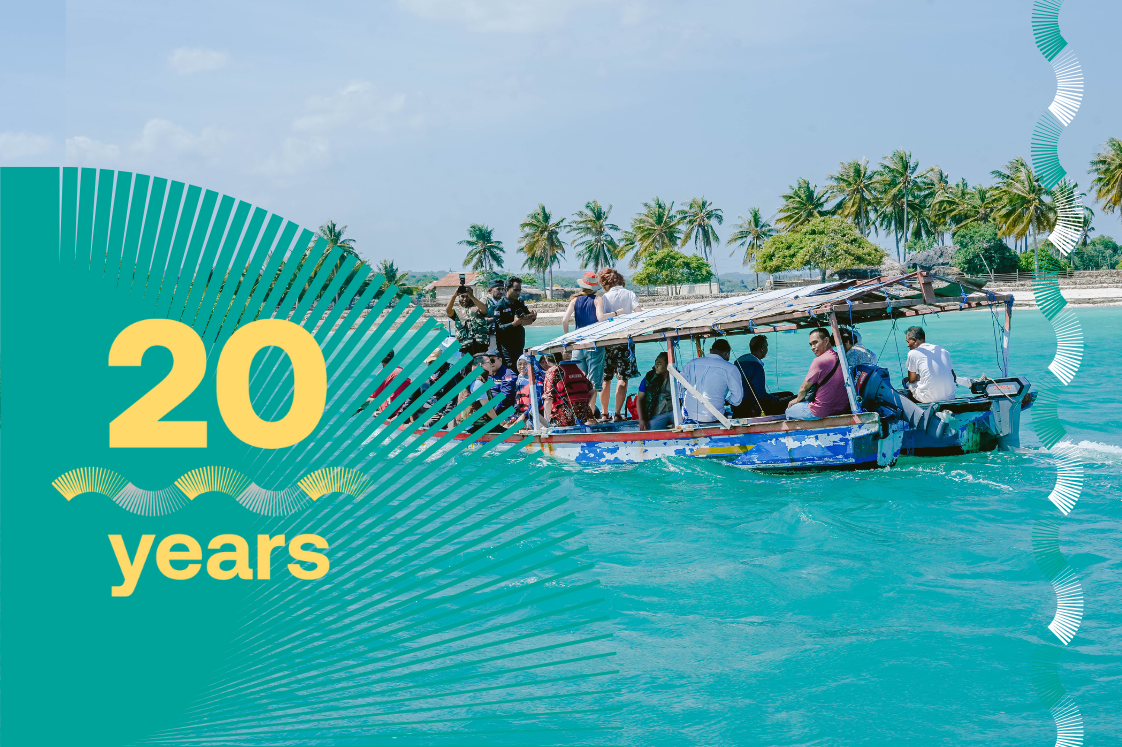A remote Indonesian island has demonstrated the potential of renewable energy: transforming local tourism by taking visitors on almost silent eBoat tours around its idyllic inlets. Built on a strong foundation of innovation and learning by EnDev, this project demonstrates how integrating sustainable practices into local industries, like tourism, drives economic development while protecting the environment: leading to a cleaner, greener – and quieter – future.
A quiet transformation
Picture sailing through the pristine waters of a tropical island, exploring the mangroves, hoping to sight a majestic sea turtle. Instead of a noisy, pungent, gasoline-fuelled outboard motor, there is only serenity. This is not a misleading holiday advertisement, but a reality for some of the 16,000 tourists who visit the beautiful island of Rote, East Nusa Tenggara province, Indonesia. Here, eBoats are transforming marine tourism into a peaceful, pollution-free experience to Telaga Nirwana, the “Lagoon of Paradise”.
But it hasn’t been plain sailing to get here. EnDev’s groundwork on earlier projects exploring the use of eBoats in fisheries had some challenges. However, these were embraced as learning opportunities and applied to a new project where boat owners in Oeseli Village, Rote Island, channel solar energy into battery-powered tourist boats.
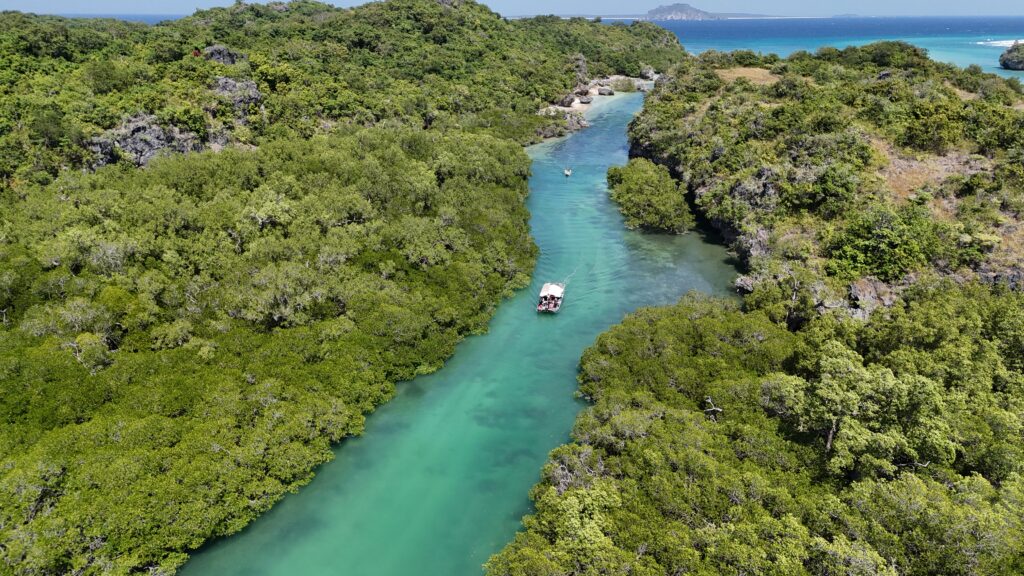
Uncharted waters
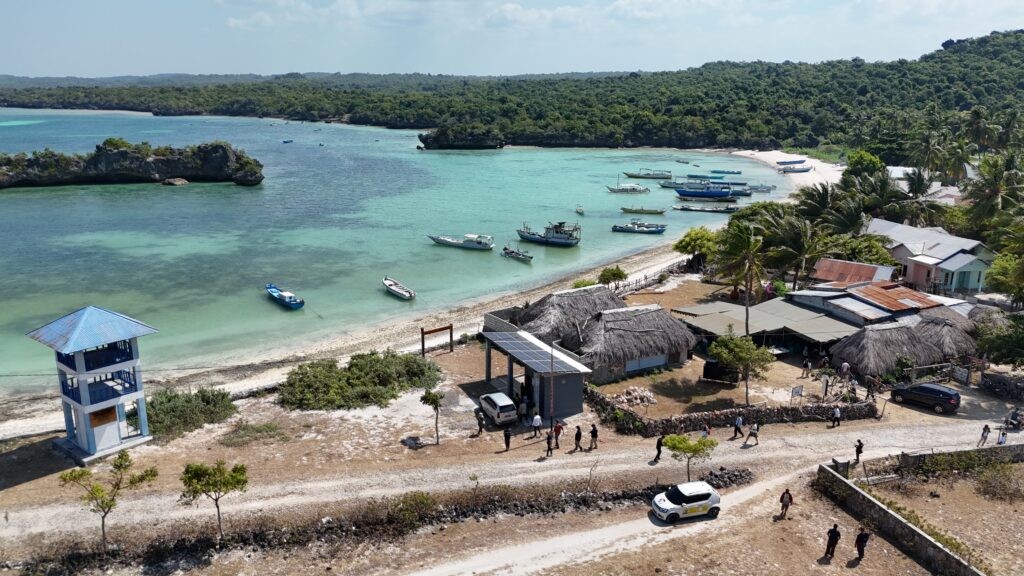
Since 2012, the Indonesian government has deployed solar-powered mini-grids to increase electricity access. However, when EnDev reviewed more than 300 mini-grids, installed as part of an earlier programme, it found less than 50% of the solar energy was used. What innovative ideas could EnDev explore to harness this untapped potential?
EnDev thought the answer could lie in powering fishing boats with electric outboard motors, replacing the traditional combustion engine. Fuel is hard to access across Indonesia’s 6,000 inhabited islands – and bad weather can make it impossible, impacting fundamental ocean-based activities, like fishing. When fuel is available, prices are often inflated, sometimes over double the market price. By harnessing solar power, batteries could be charged by the existing mini-grid. A triple win: reducing running costs and reliance on fuel availability for boat owners, protecting the environment, and improving the business case for the mini-grids.
Equipped with the idea, two phases of testing battery-powered outboard motors followed. The first phase, conducted with two fishers in Jakarta Bay, set out the battery capacity and the boat requirements for the second phase of testing: small boats less than one gross ton, which stay within 5 km of the shore, and do not carry heavy loads.
In 2018−2019, three artisanal fishers on Sabangko Island, South Sulawesi, tested two electric outboard motors on their boats, renting batteries from a solar-powered mini-grid charging station. However, it soon became clear the programme needed revising: insufficient battery capacity, remote charging stations, and other issues meant the fishers ultimately abandoned the pilot, returning to traditional combustion engines. Despite this, the work was not in vain.
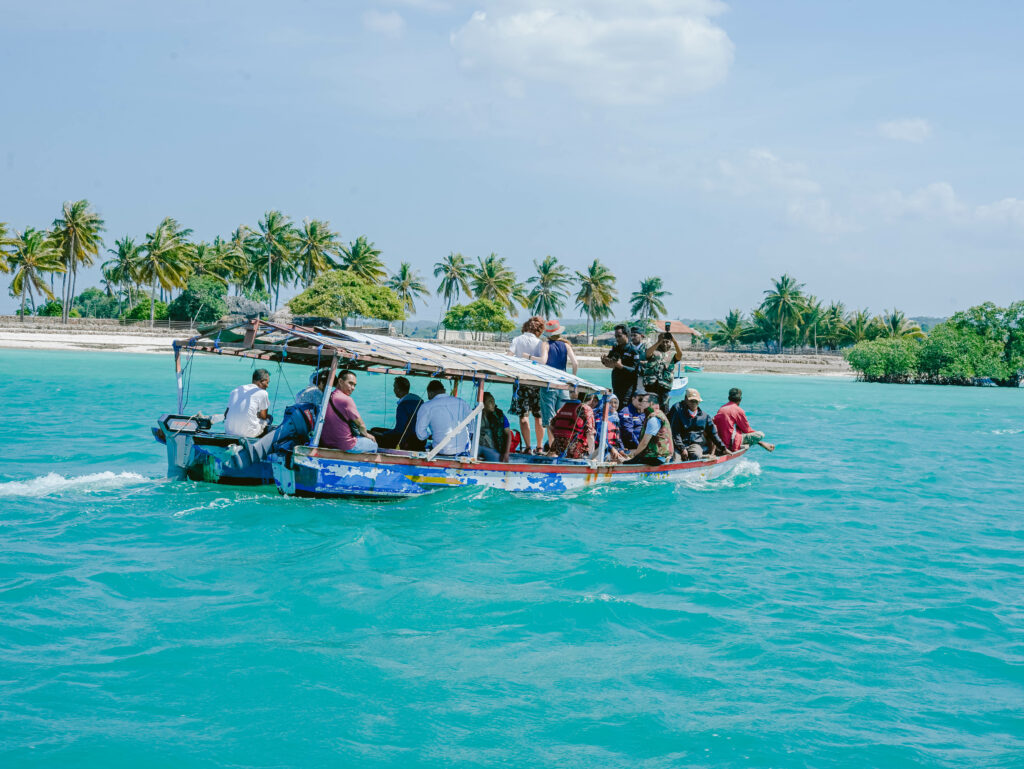
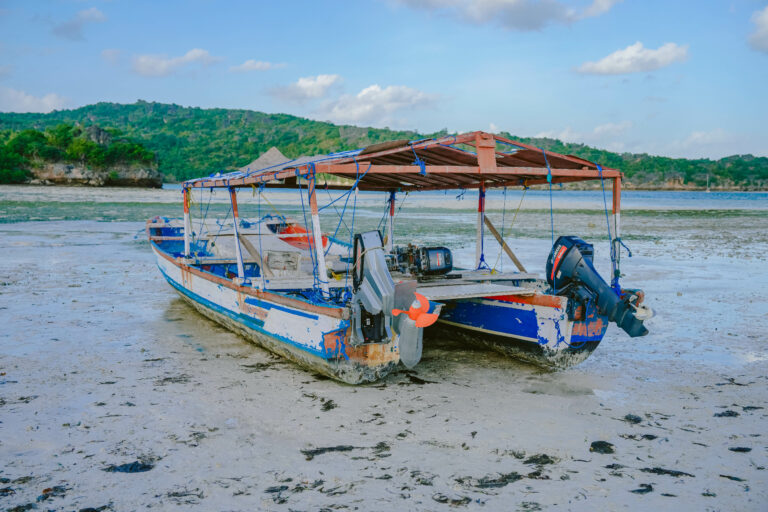
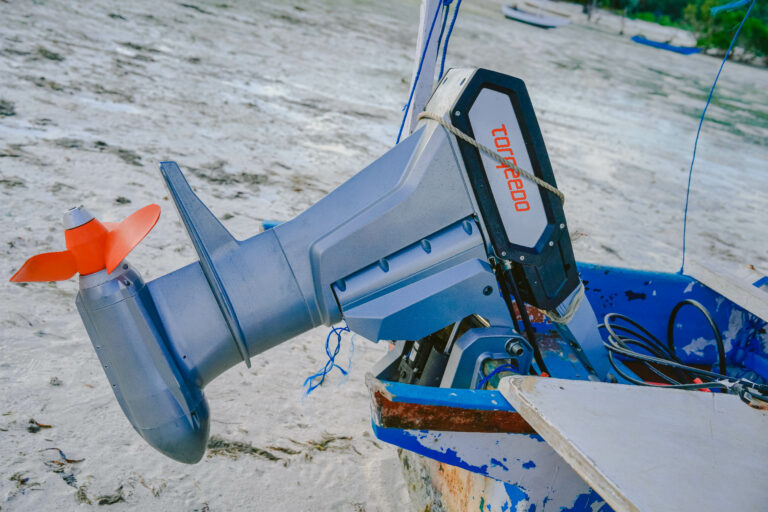
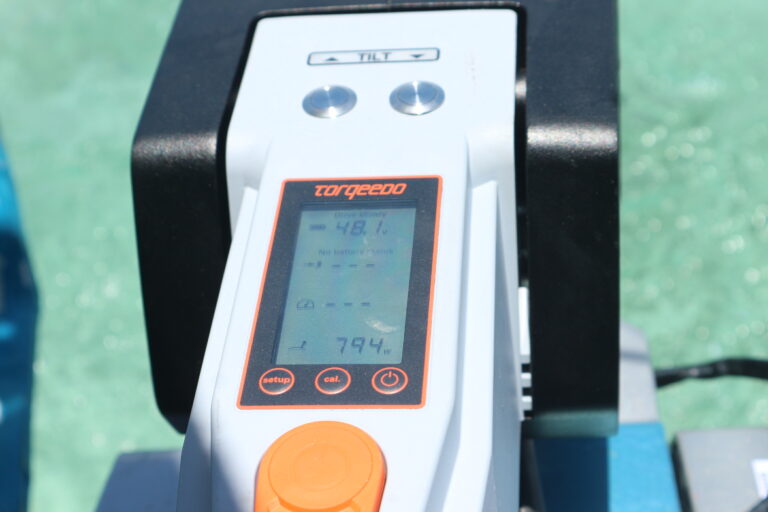
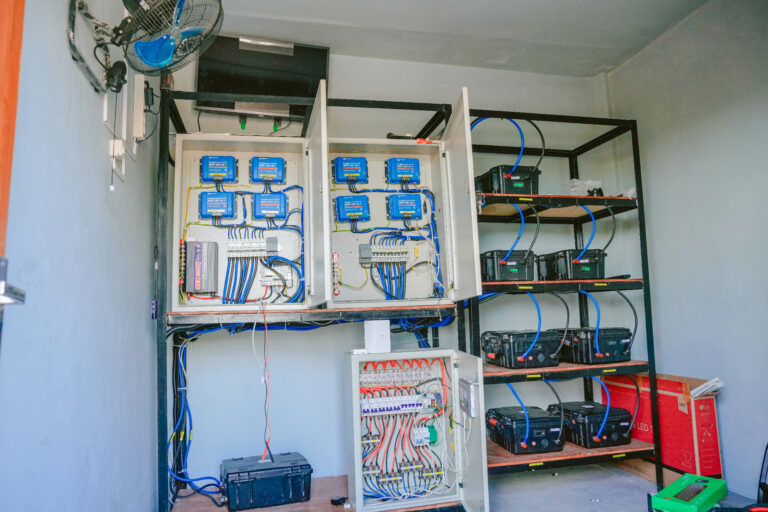
Sailing to success
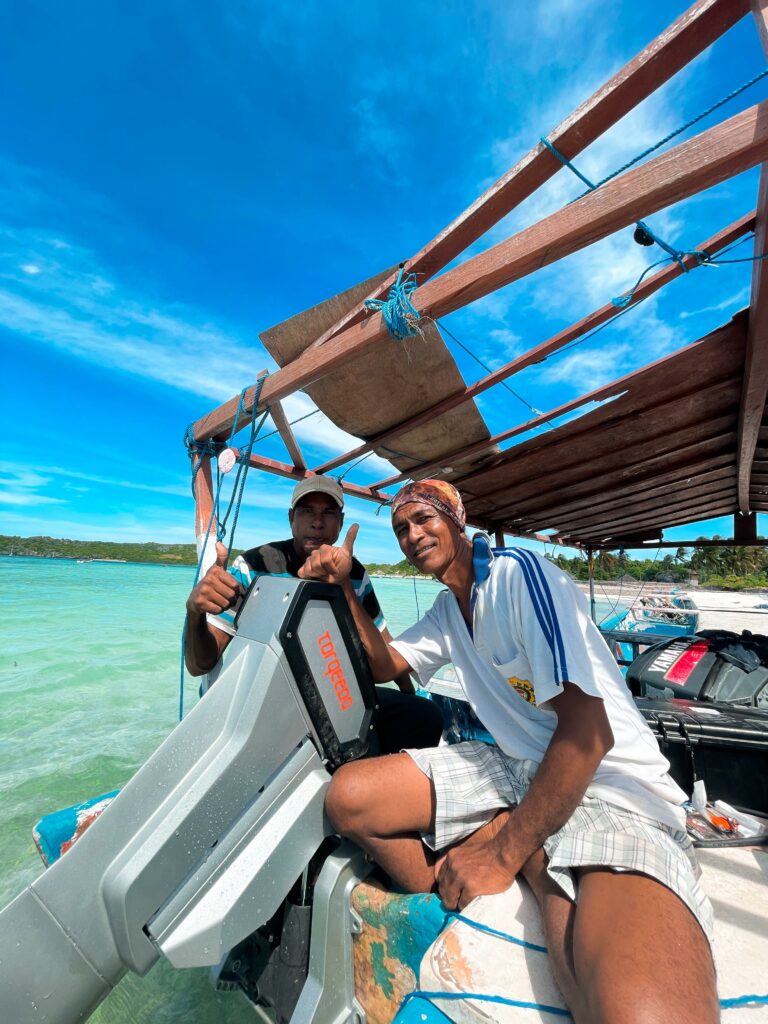
After the responsibility of implementation moved to the GIZ 1,000 Islands Renewable Energy for Electrification Programme (Phase II) in 2021, EnDev leveraged learnings from the previous two testing phases, contributing to the new project’s success.
One challenge EnDev faced in the previous project was concern from the boat operators about the power consumption of the batteries during bad weather. Therefore, the project was redeveloped on Rote Island with a focus on tourism instead of fishers. Rote Island has more sheltered inlets, and here, the tourist boats don’t venture into the open ocean, making them less vulnerable to the changing weather. In addition, the optimal speed the tourist boats travel is slower than the fishers, meaning the batteries can last longer.
Another learning experience EnDev considered during the redesign of the project was the impact of the charging station location on Sabangko Island and the batteries’ weight. As it was set back from the dock, the fishers were unsurprisingly reluctant to carry the heavy batteries too far. Therefore, during the programme design for Rote Island, the charging station was built closer to the shore, reducing any unnecessary inconvenience to support the longer-term adoption of battery-powered motors.

Today, the project employs three electric engines, powered by eight batteries which are charged at a purpose-built solar-powered mini-grid. The success of the eBoat on Rote Island also comes from the increased number of beneficiaries. During the second testing phase, only the three fishers benefited by saving money and accessing a more available energy source. In contrast, several boat owners on Rote Island share the three electric motors, taking out new tourists every day. Thousands of domestic and international visitors travel to Rote each year and the eBoat approach could be scaled to provide a unique and memorable experience to many more.
This project highlights the global potential of transitioning away from carbon-based to decentralised renewable energy and the coupling of different sectors – like energy, transport, and mobility – to drive local economic development through sustainable practices such as tourism.
Key take-aways
Test technology reliability
Test the reliability of the technology in a variety of conditions, considering for example how different uses might impact battery capacity.
Analyse user behaviour early
Examine the behaviour of users before infrastructure is constructed to avoid inconvenience becoming an obstacle to success.
Expand beneficiary reach
Consider how to increase the volume of beneficiaries in a project to increase potential market value and long-term adoption.
Revise based on stakeholder feedback
Revisit assumptions after input from stakeholders and revise solutions to better serve beneficiaries.
